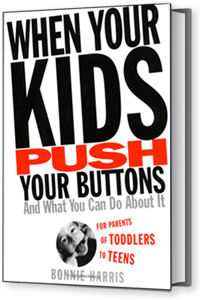Q. How can I help my 8 year old son understand that I love him just the way he is AND I want him to grow, learn and improve? He says he feels humiliated and ashamed every time I ask him to learn something new because he feels like I’m saying he needs to be better than he already is. His resilience is low and I’m trying to help him using all the techniques I can find. The school is trying to help also but last term he got a detention for not following instructions and then was so ashamed of himself that it really set him back again.

A. It sounds like you have a sensitive son, which means he’s probably quite perceptive and intuitive in ways many kids aren’t. If that’s true, he will be extra sensitive to criticism and might perceive criticism when you don’t intend it that way. He may read you as telling him what to and then think you will be disappointed in him if he doesn’t do it or learn it the way you think he should. It’s especially important for you to encourage him in ways that allow him to make decisions about what he does and doesn’t do whenever you can — within your parameters of course.
Like most mothers, I imagine you use your hindsight and experience to inform you about what will be best for him. A smart, sensitive child may have a tendency to perfectionism so when you tell him what he should learn, he thinks you’re telling him he’s not good enough. It’s hard to trust our children’s own development and progress and know that it is happening at the right pace and sequence for them — and then let them follow that pace.
This can mean that it’s not his resilience that is low. It simply means that he doesn’t like being told what to do, reminded of something he’s forgotten, or taught something he already knows (or thinks he knows). That doesn’t mean not to tell him or remind him but do expect that he will bristle at the reminder or suggestion. That’s okay.
If he reacts to you by complaining that you think he needs to be better than he is, resist leading with, “That is not at all what I mean. You are just fine the way you are. I just want you to learn ….” That is an attempt to get him to understand you. Instead, try to understand him first. “Ah, so you think when I say something like that it means I want you to be better than you are and that I’m not okay with how you are right now. Well, no wonder that makes you mad. I need to find a different way to say it because that was not my intent at all.”
Expect that he will feel humiliated if you tell him something he either already knows or thinks he should know. That doesn’t mean he will always be this way. It just means he doesn’t like to be corrected or criticized and gets defensive. Of course, you don’t want him to be this way, but with this level of sensitivity, any correction can feel like an attack — for now. When you get that, you will be more sensitive in the way you say things – but don’t try to protect him from getting bristly. Just don’t take it personally.

I love kids like this because it means he has to find his own way through things — if you’ll let him. He’s pushing you back from telling him what to do. Annoying, yes. But great if you can step back and let him find his way without trying to smooth his path. Using problem solving skills you can guide him with questions that keep the focus on him, not on you and what you expect. He can then come up with his own answers. You can guide him with questions like, What would happen if you did that? Problem solving puts him in the driver’s seat with you as his navigator offering only facts and information. It’s so easy to be a backseat driver and tell him what he has to do and how to do it.
I encourage you to offer him options and opportunities and let him decide which are right for him. If he has to do something that you want him to do, refrain from saying things like, “You need to learn how to clean the dishes properly.” Instead talk about what you want and don’t want. “I want the dishes cleaned so I don’t see any spots left on them.” Tiny but important word change. Instead of, “Don’t speak to me with that tone of voice,” try, “I don’t like it when I hear that tone. I feel dismissed.” When you come from your point of view, it travels easier than when it sounds like you are telling him what he should and should not do.

Follow his lead and guide his thinking with your trust in his unique process. It’s all about letting go, which can feel like giving up your parental role. But in fact, you are doing what every parent should—supporting your child in finding his own way.
And I can’t help but say he should never get a detention for not following instructions. He’s eight. They should be working with him on why he wasn’t paying attention and help him do that rather than punishing him for being a normal eight year old. Detention of course makes him feel horrible, especially if he thinks it was unfair. He’s reacting to the injustice of it. You can validate his feelings without getting in his problem.

We punish our children in an attempt to keep them from pushing our buttons, often escalating the original problem into a cycle of anger and blame. When Your Kids Push Your Buttons is not about what to do to your kids to get them to stop pushing your buttons. This book is about how to be the parent you wish you could be-the parent that only you are holding yourself back from.
Related Articles:







